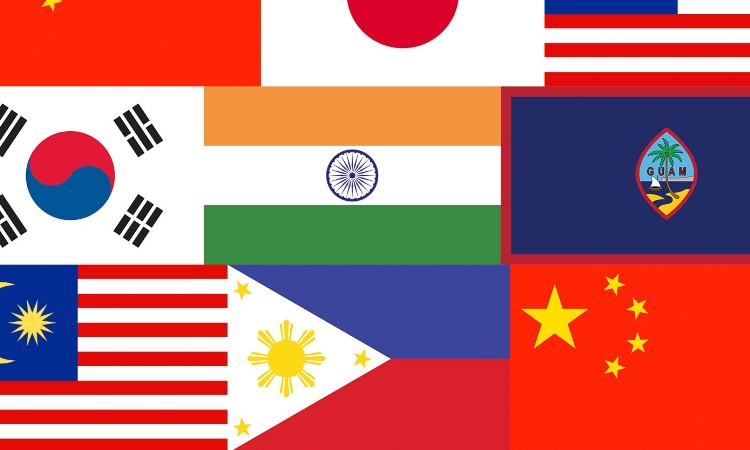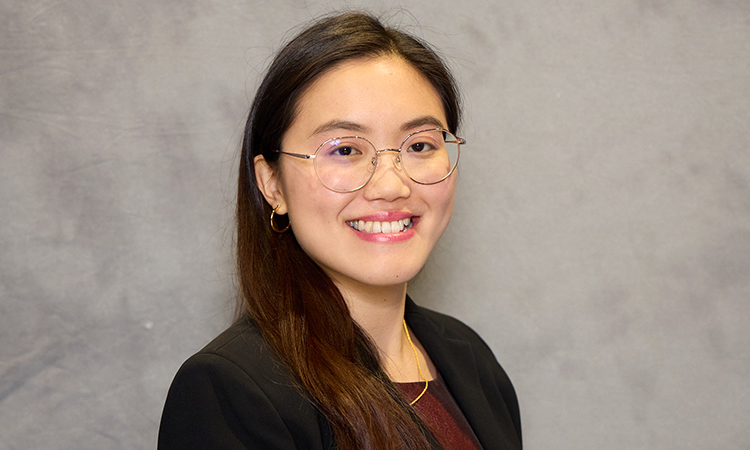May marks the anniversary of several milestones in Asian American history, notably the arrival of the first immigrants from Japan in 1843 and the completion in 1869 of the transcontinental railroads, which was largely built by Chinese immigrants. In recognition of these and other events, Congress designated May as what is now known as Asian American Pacific Islander Heritage Month in 1990 to celebrate the contributions that generations of AANHPI communities have made to American history, society, and culture.
KPSOM took part in this observance in several events, both on and off campus, with students, faculty, and staff engaging in dialogue about the health and healthcare challenges facing AANHPI communities and supporting efforts to bridge inequities.
- On May 2, the KPSOM Speaker Series featured a presentation by Kimberly Chang, MD, MPH, Director of Human Trafficking and Healthcare Policy for Asian Health Services, a federally qualified health center in Oakland, California. Dr. Chang is a leading voice on issues of social justice and health equity for underserved AANHPI communities. In 2021, she was appointed by President Biden to the President’s White House Advisory Commission on Asian Americans, Native Hawaiians, and Pacific Islanders. Although she dedicated her medical practice to caring for underserved patients from the outset, Dr. Chang told the story of how a 15-year-old female patient, who arrived at her clinic badly beaten and near death, changed the trajectory of her practice to focusing on victims of sex trafficking and exploitation. “There's a lot of social circumstances that create vulnerabilities for [patients] to be hidden, marginalized, or not have access to resources,” Dr. Chang said of the populations she serves. “This lack of access to resources is really across the board, whether you're Asian, Black, White, Latino, Indigenous; the lack of resources creates vulnerabilities to be exploited.”
- On May 9, members of the KPSOM Equity, Inclusion, and Diversity (EID) Committee of the Student Council led by Heejeong Kim and Prince Wang sponsored a Complementary Medicine Conversation at the Outdoor Theater with 54 participants in attendance. The conversation focused on the exploration of the history and evidence base of traditional Chinese medicine as well as respectful and effective integration of some of its practices into clinical care. This event was the realization of one of the EID Committee’s spring goals focused on complementary co-curricular learning with support from the EID Workgroup, Office of Student Engagement, and Office of Equity, Inclusion, and Diversity.
- On May 17, Quyen Ngo-Metzger, MD, MPH, KPSOM Professor of Health Systems Science, attended a reception at the White House in recognition of AANHPI Heritage Month. The invitation to meet with President Joe Biden and First Lady Dr. Jill Biden was extended to Dr. Ngo-Metzger following her recent appointment as a voting member of the Health Equity Subcommittee of the President’s Advisory Commission. “It is very important to me to be part of the President’s Advisory Commission because I have been working to address health disparities in AANHPI communities for over two decades,” said Dr. Ngo-Metzger. “Some health inequities have improved but other health problems have worsened. It is crucial that we address the current health inequities, especially more recent problems related to COVID-19.”
- Also in May, KPSOM’s social media channels spotlighted Min Jung Park, MD, MMSc, KPSOM Clinical Associate Professor of Clinical Science, who shared who most inspired him to go into medicine. "It all started with my mother, who practically raised me as a single mom. Who did everything in her power to provide me with the opportunities to have a happy life. The sense of self-sacrifice and love I learned from her gave me no choice but to become an empathetic physician and to share what I was fortunate enough to receive." He also told of his personal well-being journey as a physician. "As a part of work-life balance, I started running. Little did I know, the running community is such a positive space where, as a physician, I can find many other ways to have an impact outside of the confines of hospitals and clinics… One of my dearest endeavors is running for charities such as the American Cancer Society and Multiple Sclerosis Foundation. I have many friends and family suffering from cancer, living with MS, and running marathons in their honor has been one of the most fulfilling accomplishments I've enjoyed outside the hospital. I aim to have an impact on our communities, both in and outside of the hospitals."



